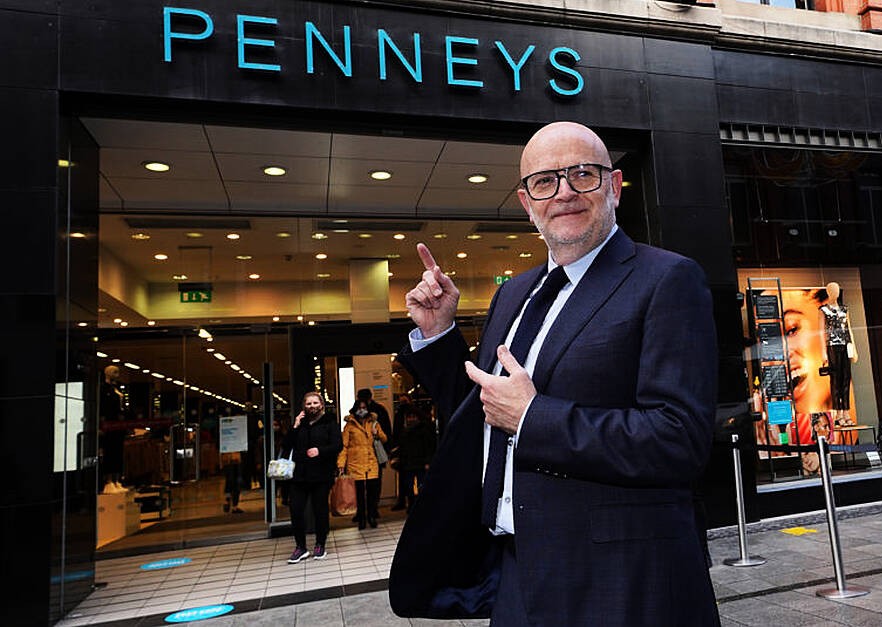A Watershed Moment?
The removal of a successful CEO, who had overseen significant growth at Primark, signals that the cost-benefit analysis of tolerating misconduct may finally be shifting. Companies are increasingly recognising that the long-term damage to organisational culture, reputation, and legal liability far outweighs any short-term disruption from leadership changes.
For the countless women who continue to navigate hostile workplace environments, Primark’s response offers a glimmer of hope that the tide may be turning toward greater accountability and safer workplaces for all.
Paul Marchant has resigned as CEO of Primark with immediate effect following an investigation into inappropriate behaviour toward an employee in a social setting. The investigation, conducted by external lawyers at the direction of parent company Associated British Foods (ABF), found that Marchant’s actions “fell below the standards expected” by the organisation.
Primark CEO’s Fall and the Language of Accountability
The characterisation of Marchant’s behaviour as an “error of judgment” reflects a troubling pattern in how workplace misconduct is euphemistically framed. This soft language, deliberately vague and minimising, serves to distance perpetrators from the full impact of their actions.
When executives describe inappropriate behaviour using terms like ‘error of judgment,’ ‘misunderstanding,’ or ‘momentary lapse,’ or – as I’ve heard in one remarkable adjudication – claiming to be ‘a trillion percent certain,’ they engage in a subtle form of responsibility deflection. Such phrasing either minimises actions as a single misstep or uses hyperbole to shut down scrutiny, rather than acknowledging what may be part of a pattern of toxic behaviour or a fundamental issue of misconduct enabled by their position of power.
The fact that ABF specifically mentions their ongoing support for the affected individual speaks volumes about the seriousness of the incident. Companies rarely commit to supporting victims publicly unless the situation warrants significant intervention, suggesting the impact extends beyond what the sanitised language would have us believe.
George Weston, CEO of ABF, expressed his disappointment in Marchant’s behaviour, emphasising that “high standards of integrity are essential” and that “colleagues and others must be treated with respect and dignity.”
ABF has publicly committed to providing “a safe, respectful, and inclusive work environment where all employees and third parties are treated with dignity and respect,” reinforcing that Primark is “committed to doing business the right way at all levels of the company.”
The Silent Epidemic in Workplaces
The swift action taken by Primark and ABF stands in sharp contrast to how such cases have historically been handled. Recent statistics reveal the disturbing prevalence of workplace harassment:
- According to a 2023 survey by the TUC (Trades Union Congress), approximately 52% of women have experienced some form of sexual harassment in the workplace
- Nearly 80% of women who experience harassment never report it to their employers
- Among those who do report, 45% say nothing changed as a result, while 25% report facing negative consequences for speaking up
- Women in positions with less job security, such as temporary contracts or lower-wage positions, are 50% more likely to experience harassment
The Harrods Case – When Systems Fail Women
The Primark response differs markedly from the notorious Harrods scandal, where allegations emerged that the organisation fostered a culture where harassment was overlooked and even normalised. Former employees described a toxic environment where women were subjected to inappropriate comments, unwanted advances, and a pervasive culture of fear.
What made the Harrods case particularly disturbing was how the behaviour allegedly continued unchecked for years, with accusers claiming the company’s HR department prioritised protecting executives over investigating complaints. Many women reported being afraid to come forward, fearing both professional retaliation and personal safety concerns.
When cases like Marchant’s become public, they often represent just the visible portion of deeper patterns of problematic behaviour. Research indicates that individuals who engage in workplace harassment …
- Frequently have multiple victims over time, though most incidents go unreported
- Often exhibit patterns of boundary-crossing that escalate gradually
- May leverage their professional accomplishments and public personas to shield themselves from consequences
- Create workplace cultures where loyalty is demanded and dissent is punished
“Our culture has to be, and is, bigger than any one individual”
Primark’s decisive action sends a powerful message to the business community – no executive is too valuable to be held accountable. Their statement that “Our culture has to be, and is, bigger than any one individual” reflects a growing recognition that leadership misconduct causes far-reaching damage beyond individual victims.
What remains to be seen is whether this represents a genuine shift in corporate governance or an isolated response to a specific incident.
Subscribe to The FEMCAST and help us bring these critical stories to light. Each listener, each voice, and each story makes a difference. Together, we can break the silence.
If you enjoy my content and would like to support our research and work, consider buying me a coffee (by clicking links below). Your contribution helps me continue creating this content. Thank you for your support!








